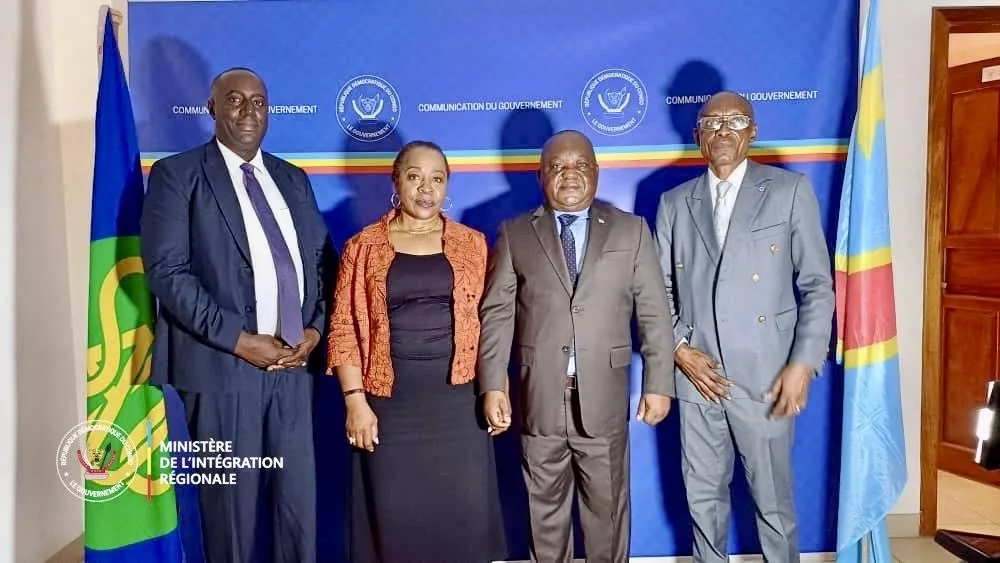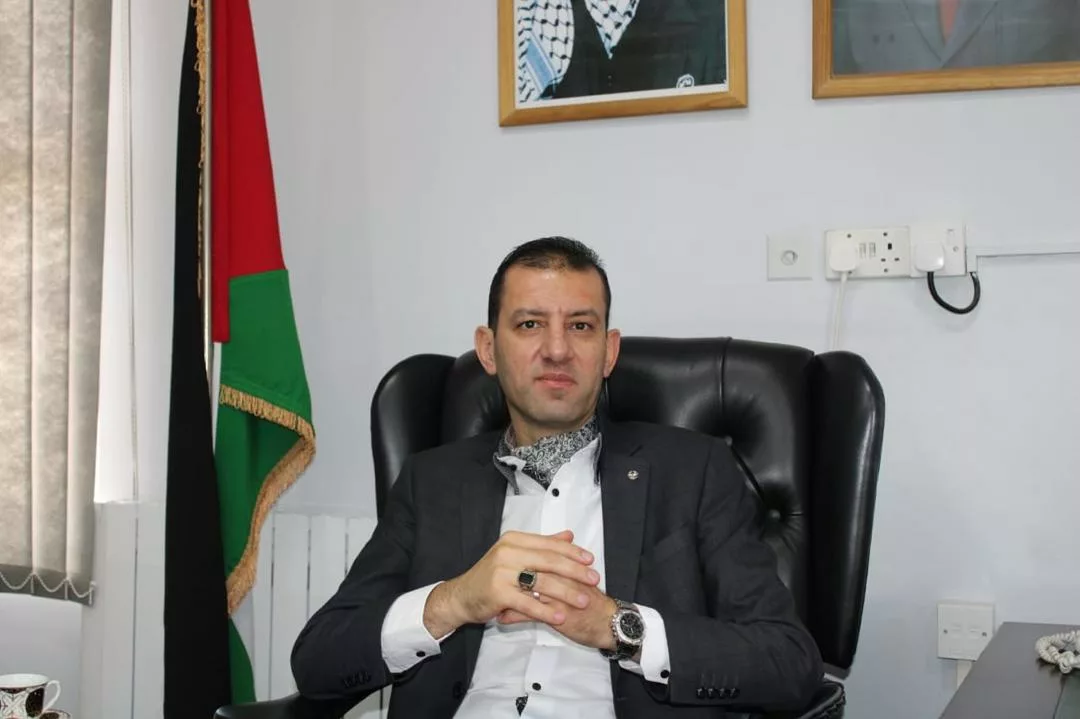|
Getting your Trinity Audio player ready...
|
The Southern African Development Community (SADC) Deputy Executive Secretary responsible for Regional integration, Ms Angéle Makombo N’Tumba paid a courtesy call to the Minister of Foreign Affairs and International Cooperation of the Democratic Republic of Congo (DRC), Mr Antipas Mbusa Nyamwisi on 6 May 2024 in Kinshasa, DRC.
The courtesy call took place ahead of the Inter-Ministerial Task Force (IMTF) of SADC Ministers responsible for transport, trade, and security matters comprising representatives from the Democratic Republic of Congo and the Republic of Zambia, currently underway in Kinshasa. The Deputy Executive Secretary was accompanied by the Director of Policy, Planning and Resource Mobilisation at the SADC Secretariat, Mr. Mubita Luwabelwa.
Ms N`Tumba assured the Honourable Minister that the SADC Secretariat is committed to supporting SADC Member States in achieving the goals and aspirations of the Regional Integration Agenda, and in this case, the Governments and peoples of DRC and Zambia. Of note, the Deputy Executive Secretary pointed out the following:
- The upcoming interministerial meeting is structured in such a way that it will start with a technical level meeting, which will be followed by a Senior Officials engagement and then finally the Ministerial level meeting on 9th May 2024.
- The focus of the engagement will be to consider the Framework of Cooperation and Action Plan that has been jointly designed between the two Member States from previous engagements, with the support of the Secretariat. In this regard, the purpose of the Framework and Action Plan is to find a lasting solution to the challenges that hinder trade and commerce at the Kasumbalesa border post between DRC and Zambia because this is an important regional border post.
- The Secretariat remains at the disposal of the DRC, Zambia and the entire SADC region in the quest to find a lasting solution to issues that affect trade and business in the region because a lack of resolution of these matters has a huge impact on the lives of the people of the region. Enhanced trade flows are key to enterprise, business, and improved livelihoods of the people of the region.
The Honourable Minister reiterated DRC’s resolve to find a lasting solution to the Kasumbalesa Border Post issue which has been outstanding for years. The Honourable Minister further stressed the following:
- The two Governments, right from the Heads of State and lower Government structures are actively engaging to address the matter of Kasumbalese once and for all. Further, Kasumbalesa is important not only to Zambia and DRC but to the entire SADC Region’s regional integration agenda.
- The Government of the DRC is resolved to have the Kasumbalesa border congestion resolved to foster trade within SADC because this border post between Zambia and DRC is strategically located and cannot only transform the lives of the people within these two countries but also in the entire SADC region.
- An improved Kasumbalesa Border will mean better and more efficient border operations, which will in turn contribute to the overall goal of regional integration by facilitating the free movement of goods and people across borders. This is especially important for most of our people who are women and youths.
- Importantly, the resolution of the border issue is not only important for big traders and the business community, but it also has a direct impact on the common people on the ground whose lives we strive to improve as a community.
- Decongesting Kasumbalesa border post will decongestion the border and thus lead to more efficient trade flows, reduced costs associated with delays in transportation and logistics therefore leading to lower costs of doing business amongst our people involved in cross-border trade, lower prices for consumers and improved welfare of the lives of the people. Other benefits of having a better and more efficient Kasubalesa are many and these include enhanced security, enhanced cross-border relations, and promotion of tourism, amongst other benefits.






